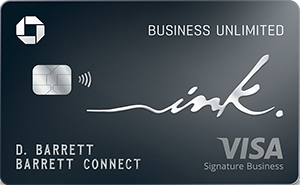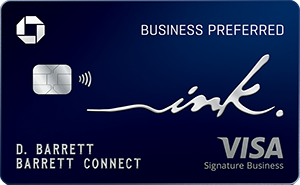Often when people want to start a business, they get hung up on start-up costs. It’s true that for many business concepts, you need to have some start-up capital to get your idea off the ground. But many of the things you need to start a business are more nuanced, more important, and more hard to find than money.
Here are a few of the characteristics and intangibles that new entrepreneurs need to have — even if you have $0 of start-up capital.
1. Product-market fit
You have to know that there is demand for your services or your product, and that you can meet that demand. Ask yourself:
- What problem are you trying to solve with your business?
- What other businesses are already serving this market? (Hopefully a lot! That’s a good sign that there is enough demand for what you sell.)
- What can you do better than the competition in this market?
- How much can you charge for your product (or service) to be profitable?
Sometimes a great product does not translate into a successful business. A boutique pizza restaurant that serves $50 artisanal pizzas made by hand with all-organic ingredients might not find product-market fit in a neighborhood where the average pizza costs $10. An elegantly designed software app might have the best features on the market, but if it costs $500 per month per user, no one will want to pay that much if comparable software costs only $5 per month.
Finding product-market fit doesn’t have to happen overnight. It can be a gradual process of test runs, showing your product to people, offering your services on a trial basis, or otherwise testing the waters to see if it’s time to launch your business. Gather feedback from potential customers in person, online, or with email marketing surveys.
2. Passion
The best entrepreneurs need (and want) to make a profit and have a prosperous life, but they’re also driven by passion. Do you believe in your business? Do you love what you do? Do you care about your customers? Are you excited to be doing this? It’s got to show.
Business Credit Card Comparison
Consider these business credit cards that offer a convenient and efficient way to separate personal and business expenses, simplifying accounting and tax reporting.
Additionally, business cards can provide valuable perks such as rewards points, cashback, and expense tracking tools, enhancing financial management and the potential to help save money in the long run.

Ink Business Unlimited® Credit Card |
|
Earn $750 bonus cash back Earn $750 bonus cash back after you spend $6,000 on purchases in the first 3 months from account opening. |
Earn unlimited 1.5% cash back on every purchase Earn unlimited 1.5% cash back on every purchase made for your business |
Purchases: 0% Intro APR on Purchases, 12 months Balance Transfers: N/A
Regular: |

Ink Business Preferred® Credit Card |
|
Earn 100,000 bonus points Earn 100,000 bonus points after you spend $8,000 on purchases in the first 3 months from account opening. |
Earn 3 points per $1 in select business categories Earn 3 points per $1 on the first $150,000 spent in combined purchases on travel, shipping purchases, Internet, cable and phone services, advertising purchases made with social media sites and search engines each account anniversary year. Earn 1 point per $1 on all other purchases-with no limit to the amount you can earn. |
Purchases: N/A Balance Transfers: N/A
Regular: |
Not every business succeeds, and not every enthusiastic entrepreneur has a great product, competitive pricing, or everything else you need — but you’ve got to have passion to get your company off the ground. The world is full of corporate brandspeak and big-box stores. What makes your small business special and memorable? How are you bringing color, creativity, and delight to the world?
3. Hustle
Entrepreneurs are some of the hardest-working people on Earth. You don’t have “work-life balance” as an entrepreneur, you just have “life.” You’ve got to be willing to work harder at this than any job you’ve ever had. You’ve got to love building your business more than you love hobbies or going to movies or chatting with friends or going on vacation.
This doesn’t mean you should burn yourself out. Don’t work yourself to the bone, or so hard that you damage your health or neglect your relationships. But you’ve got to be willing to put in the hours upfront to find clients, make sales, and figure out how to generate income in your business bank account.
4. Curiosity
Running a small business is a nonstop 365-days-per-year learning experience. You’re going to have to wear lots of hats and learn lots of roles and skills — from sales and marketing to bookkeeping and accounting. The best entrepreneurs have insatiable curiosity — they are lifelong learners who love to ask questions, and they’re not afraid to make mistakes or admit when they were wrong.
Being self-employed can be a great way to keep your mind active and stay fully engaged with life. Curiosity helps you stay nimble and adaptable and bounce back from setbacks. Entrepreneurs are always trying to create forward momentum, asking, “What’s next? How can we improve? How can we create, build, and grow?”
5. Rigor
Entrepreneurs need to be able to make tough choices. Running a small business requires a disciplined thought process and a rigorous mindset. You will encounter situations where you have to give someone bad news — terminating an employee, ending a longtime vendor relationship, or cutting ties with a business partner.
Along with personal interactions, small business owners have to be rigorous in the way they evaluate their company. You might have to tackle tough questions, like:
- Which product lines deserve more investment, and which should be cut?
- Which store locations are thriving, and which ones aren’t delivering on their potential?
- Which new target markets should you explore?
- Which small business marketing tactics are delivering return on investment (ROI), and which ones should you give up?
- How can you strike the right balance between trying new things and being creative, and being appropriately conservative and focused on what your company does best?
There are no easy answers to most of these questions, and the stakes can be high. But with a calm, disciplined approach, small business owners can chart a path forward for their companies.
Bottom line
It’s true that you might need thousands of dollars to start a business. But the most important things you need to start a business are harder to find than money: certain mindsets, skill sets, value systems, and personality traits.
Not everyone is cut out to be an entrepreneur, and that’s fine. But many people who want to start a business can learn the skills and train themselves in the right mindsets. The best entrepreneurs are open to creative possibilities while bringing solid business discipline — does that sound like the sort of person you’d like to be?
Alert: our top-rated cash back card now has 0% intro APR until 2025
This credit card is not just good – it’s so exceptional that our experts use it personally. It features a lengthy 0% intro APR period, a cash back rate of up to 5%, and all somehow for no annual fee! Click here to read our full review for free and apply in just 2 minutes.
